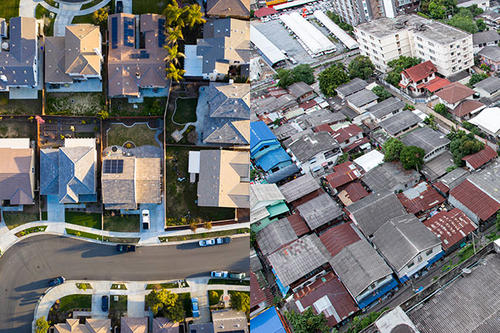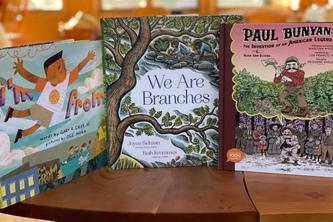
Shortly after Samuel Myers moved to Minnesota in 1992, he discovered a side of the state that was incongruent with the namesake of his Humphrey School of Public Affairs—Hubert H. Humphrey, the floor leader for the 1964 Civil Rights Act.
“I was surprised when I discovered the wide racial gaps in virtually every measure of social and economic well-being,” says Myers, Roy Wilkins professor of human relations and social justice and director of the Roy Wilkins Center for Human Relations and Social Justice. “How is it possible for this to be such a great place to live for the majority, and for there to be such wide racial gaps?”
Myers has coined the term Minnesota Paradox: In terms of economic prosperity, Minnesota is one of the best places in the world for whites to live but, relatively speaking, one of the worst places for Blacks.
While explanations for the paradox are complex, Myers sees a path forward for Minnesota that includes eliminating disparities in generational wealth and home ownership rates. He took some time to talk about how this might be accomplished.
Much of the wealth disparity in the Twin Cities stems from differences in homeownership rates. Are there some tangible solutions to this in the short-term?
Yes, by vigorous enforcement of the existing anti-discrimination laws. The Minneapolis Fed (along with the U.S. Attorney for Minnesota and the Department of Justice) should take a visible leadership role in a) noting that they will initiate audits as a component of enforcing the Equal Credit Opportunity Act and the Fair Housing Act; and b) that litigation will be aggressively pursued (versus pre-trial settlements) both as a deterrent strategy and as a way to repair the damages to minority communities.
Should there be more of a focus on affirmative action—geared either toward racial or income measures—when it comes to lending and other financial practices?
There is something called the Community Reinvestment Act, which focuses on place, versus race alone. We need stronger enforcement of these policy levers.
I do not think you need "affirmative action" in lending. I think you need "anti-discrimination" in lending to solve the problem of racial discrimination in mortgage lending and disparities in homeownership.
However, a different strategy might work to redistribute wealth. Many homeowners lost their equity when I-94 destroyed the Rondo community [in St. Paul]. One possibility is to redress this equity loss by the creation of a community fund that subsidizes the down payments (and therefore creates equity) for qualified residents. The subsidy financed through the community fund would be race-conscious.
Is there a way to do away with predatory lending and the payday loan lenders?
The reason why there are payday lenders and predatory lenders is that major banks like Wells Fargo and US Bank do not lend to or offer services to populations that are underserved.
A good way to remedy this problem is to have government financing for services to unbanked populations that include training, educational strategies, and mechanisms that serve as a bridge to credit union memberships.
So, the solution to the unbanked problem is community-owned banks, savings associations, and credit unions targeted to and run by Black, Indigenous, and immigrant populations.
Other than talks of police reform, have you seen the needle move at all toward policy changes and more racial equity in the aftermath of the George Floyd killing?
Yes. In academia there is greater urgency to teach about race. MIT's economics department has now set up a working group with publically available readings; the American Economics Association has set up a number of initiatives related to understanding systemic racism and how the organization itself has been complicit in perpetuating racism.
And in foundations, there are many new initiatives designed to promote racial healing; for example, the multi-million-dollar racial justice initiative of the Mellon Foundation.
Any other ideas for progress?
Articles like yours offer some hope for raising the awareness among whites about why Blacks are so angry and so sick and tired of being shot at by police, turned down for loans, and overlooked for their abilities and intellects.
Are you seeing any other encouraging signs that people are taking racial inequity seriously?
The most encouraging signs are in the political arena, where more and more voters are saying they believe that racial inequality is a problem.
Prior to 2016, there was little recognition among most whites about the causes of racial inequality. Most believed that the causes were not due to racial discrimination but instead were due to other actors like lack of will or motivation; in-born inferiority; lack of family structure or opportunities; or poverty.
New polls suggest a change in white views. Much of this is generational. Some of it is due to exposure to videos like the George Floyd murder.
But, for whatever reason this shift is a watershed moment in American history, when whites are seeing and believing that systemic racism is a problem.
- Categories:
- Arts and Humanities





